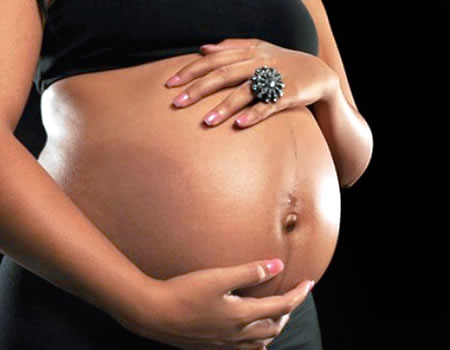During pregnancy, women are encouraged to give up an array of tempting foods and drinks which they might normally enjoy in order to help protect their growing babies. On this list of taboos are foods and drinks that contain caffeine, because it can be detrimental to their baby’s health and development later on in life.
Even at moderate levels, drinking coffee during pregnancy is tied to negative birth outcomes. Now, in a new study, researchers said that there was “substantial cumulative evidence” of a link between coffee consumption during pregnancy and risk of adverse pregnancy outcomes, including miscarriage, stillbirth, and low birth weight or small for gestational age infants.
The researchers had conducted a database search of negative pregnancy outcomes and common caffeine beverages up to October 2019. They had 1,261 English-language peer-reviewed articles. Additional screening yielded 48 observational studies and meta-analyses about coffee consumption in women, all published in the last two decades. It was in the BMJ Evidence-Based Medicine.
There were 42 findings from 37 observational studies, 10 of which suggested no association between coffee consumption in women and negative pregnancy outcomes. Of 17 findings from 11 meta-analyses, three did not suggest significant relationships.
Two studies reported a 32 per cent and 36 per cent increased risk of miscarriage with higher levels of caffeine consumption (more than 150 mg per day). Also, three studies found that stillbirth among pregnant women who consumed greater amounts of caffeine was two times, three times or five times compared with women who consumed lower levels, depending on the study.
Also, of the 13 studies that evaluated the caffeine-related risk of low birth weight and small for gestational age infants, only two reported a significant relationship.
Certainly, the amount of caffeine in a cup of coffee will vary depending on the type of coffee and how it’s brewed. The coffee at a restaurant or coffee shop, for example, can range from about 100 mg for a small cup to over 400 mg for a large cup, depending on the brand and the brew.
Also, decaffeinated doesn’t mean caffeine-free. A 16-ounce-cup of brewed decaffeinated coffee typically contains about 12 to 25 mg of caffeine.
Dr Akinlolu Adepoju, a pediatrician at the University College Hospital (UCH), Ibadan, Oyo State stated that consuming too much of caffeine during pregnancy is dangerous, given that it can also affect the unborn baby.
According to him, “Everything taken by mouth, inclusive of caffeine, is broken down in the liver. So if they are harmful, they can injure the liver. This might accelerate the development of liver disease later in the child.”
Even in pregnancy, Dr Adebukola Adesina, consultant obstetrics and gynaecologist, University College Hospital (UCH), Ibadan, Oyo State, said women are only told to take coffee in moderation because everything a mother does have some form of effect on the unborn baby.
According to Dr Adesina, “if we say that pregnant women should not take coffee because it contains caffeine, then it means that they should not take cola drinks, cocoa products and tea because they also contain caffeine. So, everything should be in moderation that is what we always teach.
“Yes, excessive intake of caffeine can lead to a low birth weight baby. But I am not sure about the liver case, but it may lead to low birth weight. Like every other thing in pregnancy, it should not be excessive; it should be in moderation.”
Due to conflicting conclusions from numerous studies, the March of Dimes states that until more conclusive studies are done, pregnant women should limit caffeine intake to less than 200 mg per day. This is equal to about two cups of moderate-strength coffee per day.
Also, the World Health Organisation (WHO) currently recommends that pregnant women consume no more than 300mg of caffeine per day – the amount contained in around two cups of medium strength, coffee is to reduce the risk of miscarriage and low birth weight babies.
Even if tallying daily intake of caffeine, been aware of all sources of caffeine that could be consumed is also important. Aside from tea and coffee, other caffeine-containing products are chocolate, cola and other soft drinks, energy drinks, and even some new forms of cereals, biscuits, and chips.
It›s also worth noting that caffeine levels will vary between products and its effects will be different for each individual.
Moreover, energy drinks are not recommended during pregnancy as they may contain high levels of caffeine, and other ingredients not recommended for pregnant women. In fact, labels on energy drinks contain warnings that state: “Not recommended for children, people sensitive to caffeine, pregnant women, or women who are nursing.”
Increased sensitivity to caffeine during pregnancy also occurs because it may take a longer time to clear it from the body than if there is no pregnancy. Caffeine can also reduce the body’s ability to absorb iron, which is a mineral in high demand during pregnancy.
YOU SHOULD NOT MISS THESE HEADLINES FROM NIGERIAN TRIBUNE
CBN Pegs Exchange Rate At 386/$
Central Bank of Nigeria (CBN) has pegged naira exchange rate at 386 units to the United States dollar as it plans to resume weekly forex sales to Bureau de Change operators from August 31. In a circular signed by O.S. Nnaji, director of trade and exchange department, the apex bank said its decision to resume FX sales to BDCs is to enhance accessibility to forex “particularly to travellers” since the resumption date for international…
Council Of State Pardons Ex-Gov Ambrose Alli, Three Others
The Council of State has ratified the presidential pardon extended to late former Bendel State Governor, Prof. Ambrose Alli and three others. The meeting presided over by President Muhammadu Buhari at the presidential villa, Abuja on Thursday also ratified the pardon granted to Col Moses Effiong, Major E.J Olarenwaju and…
Blasphemy: I Will Not Hesitate To Sign Death Warrant If Yahya Sharif Fails To Appeal, Says Ganduje
Kano State governor, Abdullahi Umar Ganduje, has said he would not hesitate to sign the death warrant passed on Kano-based singer, Yahya Aminu Sharif if he fails to appeal the judgment. This was just as governor Ganduje said the state government has accepted the judgement passed on Sharif and is ready to abide by it. However, the Nigerian constitution gives the right of appeal to Shariff…
Southern Kaduna Crisis: We Won’t Sweep Issues Under Carpet ― Osinbajo
Vice President Yemi Osinbajo has assured that the Federal Government will not sweep the major issues underlying the conflict in Southern Kaduna under the carpet so as to effectively deal with the situation. Speaking, on Thursday, at the ongoing Nigeria Bar Association Annual General Conference during a Special Conversation, he identified the major issues to include “ensuring justice, fixing economic marginalisation and the…
Details Emerge Of How Akinwumi Adesina Got 100% Votes For Second Term As AfDB President
Dr Akinwumi Adesina was on Thursday unanimously endorsed by all the 81-member countries of African Development Bank (AfDB) for another term of five years as the 55th annual meetings of the bank ended in Cote d’Ivoire. A globally-renowned development economist and a World Food Prize Laureate and Sunhak Peace Prize Laureate, Dr Adesina has distinguished himself in driving a bold agenda to reform the Bank and accelerate …
WATCH TOP VIDEOS FROM NIGERIAN TRIBUNE TV
- Let’s Talk About SELF-AWARENESS
- Is Your Confidence Mistaken for Pride? Let’s talk about it
- Is Etiquette About Perfection…Or Just Not Being Rude?
- Top Psychologist Reveal 3 Signs You’re Struggling With Imposter Syndrome
- Do You Pick Up Work-Related Calls at Midnight or Never? Let’s Talk About Boundaries







